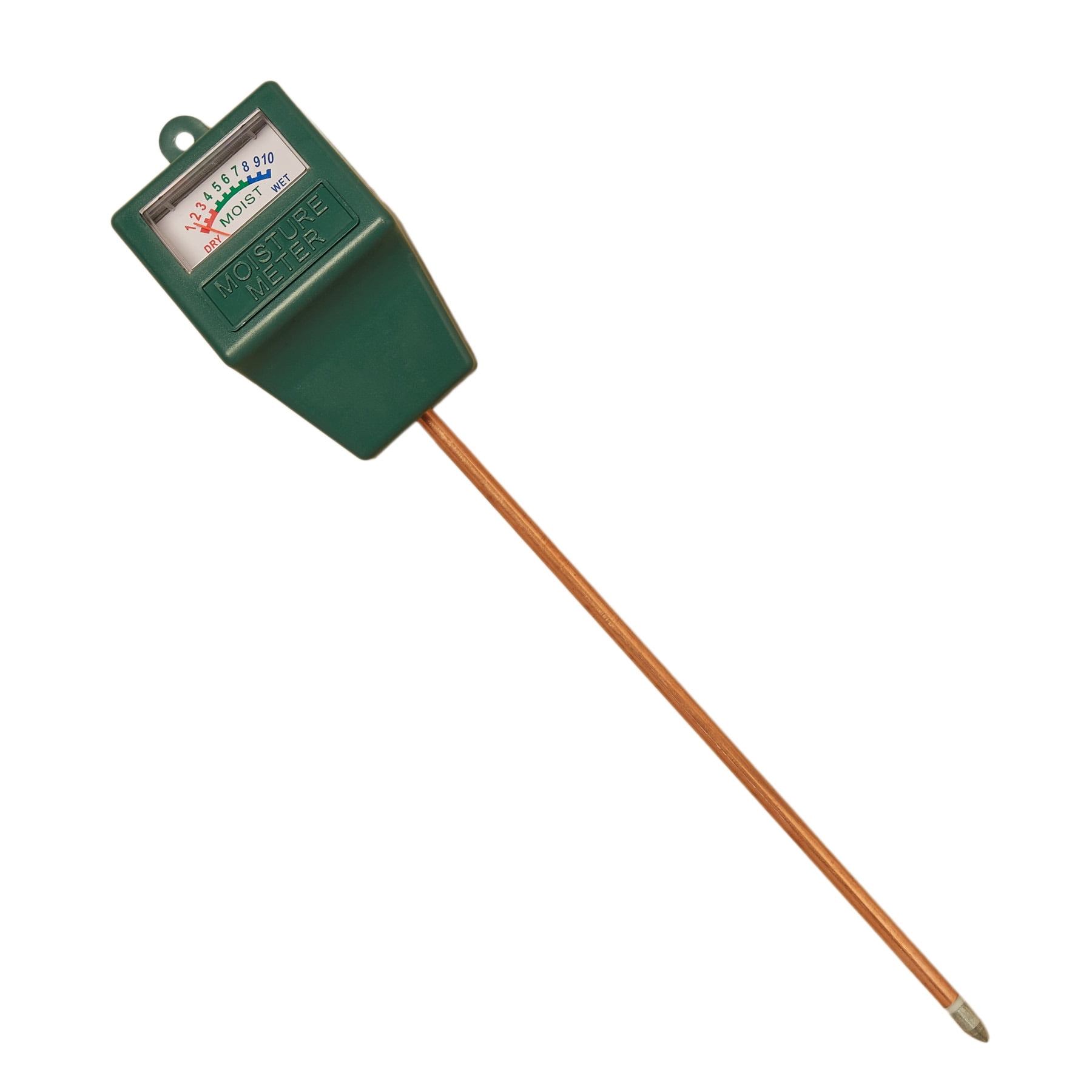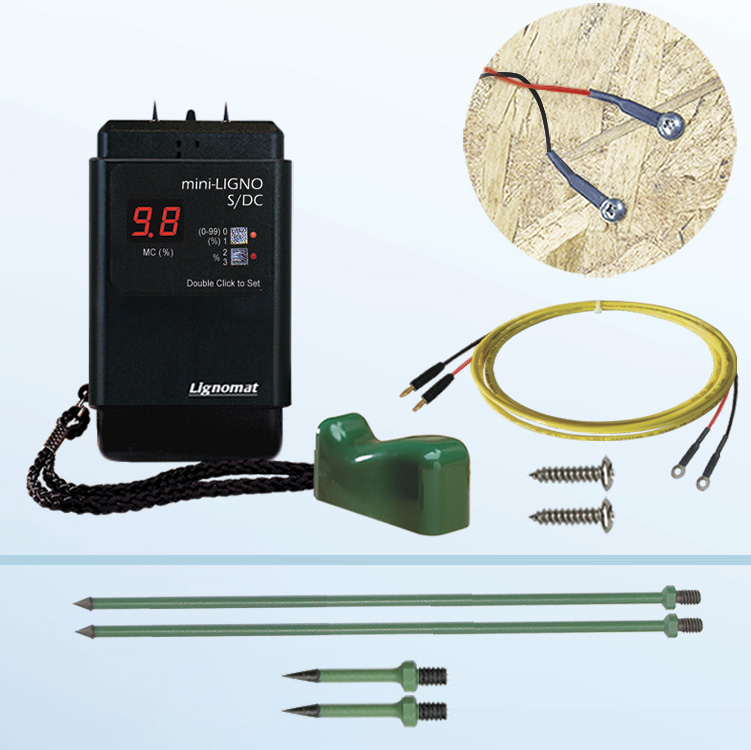Why Every House Owner Demands a Moisture Meter: Trick Benefits and Features
Why Every House Owner Demands a Moisture Meter: Trick Benefits and Features
Blog Article
The Ultimate Guide to Moisture Meters: A Comprehensive Overview and Just How They Can Conserve You Money
In the realm of structure upkeep, building, and different industries, the importance of properly determining dampness degrees can not be overemphasized. Dampness meters offer as essential tools in spotting and monitoring moisture web content in products, aiding in protecting against pricey damages and ensuring the top quality of products. Understanding the nuances of different kinds of wetness meters, their applications, and the potential cost-saving advantages they provide can be a game-changer for professionals and organizations alike. Finding how these tools can not just enhance processes however also add to financial savings is a trip worth beginning on.
Types of Moisture Meters
Different sorts of wetness meters are offered for different applications in different industries. One typical kind is the pin-type moisture meter, which measures the electric resistance between 2 pins put into a product. This kind appropriates for timber, drywall, and various other building products. Pinless dampness meters, on the various other hand, usage electromagnetic sensing unit plates to scan a larger location without triggering damages to the material's surface. These meters are excellent for rapidly analyzing wetness levels in large areas such as floorings and walls.
Moreover, there are additionally specialized dampness meters created for specific materials like grain, soil, or hay. These meters supply exact dampness analyses customized to the unique homes of the product being examined. Infrared dampness meters gauge the thermal properties of a material to establish its dampness web content non-invasively, making them valuable for applications where pin or pinless meters might not appropriate. Understanding the various kinds of dampness meters offered can assist markets select one of the most appropriate tool for their specific dampness dimension requirements.

Advantages of Utilizing Moisture Meters

Furthermore, using wetness meters can bring about increased power efficiency. By determining locations with high dampness degrees, such as leakages or inadequate insulation, changes can be made to enhance energy conservation and reduce energy expenses. In agricultural setups, dampness meters play an important function in enhancing plant yields by enabling farmers to check soil dampness degrees and make educated watering choices. Generally, the benefits of using moisture meters span throughout different markets, supplying cost-efficient remedies and advertising much better top quality control methods.
Exactly How to Choose the Right Moisture Meter
Picking the ideal wetness meter involves considering key factors such as product compatibility, measurement range, and calibration precision. When selecting a moisture meter, it's necessary to ensure that the meter appropriates for the particular material you will certainly be testing. Various products have varying electric properties that can influence moisture analyses, so choosing a meter designed for your product is essential for exact results. In addition, think about the measurement array of the wetness meter. Ensure that the meter can find moisture review degrees within the array required for your applications. Calibration precision is one more critical aspect to bear in mind (Moisture Meter). Select a dampness meter with trustworthy calibration to guarantee specific and constant analyses. Some meters might require regular calibration adjustments, so comprehending the calibration procedure is very important. By meticulously assessing these variables, you can choose a wetness meter that fulfills your needs and offers precise dampness measurements for your jobs.
Correct Techniques for Moisture Meter Usage
To make sure exact dampness readings and make best use of the effectiveness of a wetness meter, employing appropriate strategies is essential. When utilizing a pin-type wetness meter, put the pins or probes right into the product being tested until they make full get in touch with. Make sure the pins are vertical to the surface area to obtain one of the most specific analysis. For pinless dampness meters, hold the device flat against the material and move it slowly to cover the entire area for an average reading. It's important to calibrate the wetness meter according to the material being evaluated to enhance accuracy. Take multiple readings across the surface area and ordinary them out for an extra trusted result. Additionally, ensure that the product being examined is accommodated to the setting to stop skewed analyses. Routine maintenance of the moisture meter, such as cleaning the pins or sensing unit, is additionally crucial to make sure accurate and regular analyses. By following these proper techniques, customers can depend on their wetness meter to offer trustworthy dampness levels, aiding in preventing expensive damage or ensuring top quality in different applications.

Cost Cost Savings Through Moisture Meter Applications
Exactly how can the critical utilization of wetness meters lead to considerable price financial savings across various markets? In the farming sector, moisture meters aid in identifying the ideal time for collecting crops, avoiding excess or over-drying wetness that can influence the final product's top quality.

Furthermore, in the food processing industry, moisture meters are crucial for monitoring product quality and ensuring compliance with security policies. By accurately gauging dampness content in foodstuff, manufacturers can prevent perishing, keep quality, and minimize waste, causing substantial expense financial savings. On the whole, the critical application of dampness meters is a useful investment that can result in substantial price decreases and enhanced efficiency across numerous markets.
Final Thought
In final thought, dampness meters are valuable tools for gauging and identifying moisture levels in various products. By making use of the right wetness meter and following correct strategies, customers can properly avoid costly problems caused by excess dampness.
Dampness meters offer as indispensable tools in finding and monitoring moisture material in materials, aiding in stopping expensive problems and ensuring the high quality of items. Infrared moisture meters measure the thermal residential or commercial properties of a material to identify its dampness content non-invasively, making them beneficial for applications where pin or pinless meters might not be suitable.Dampness meters supply invaluable benefits in properly keeping track of and assessing wetness levels in varied products and environments. In farming settings, moisture meters play a crucial function in enhancing plant returns by enabling farmers to keep an eye on soil sites dampness degrees and make informed irrigation choices.In final thought, dampness meters are important tools for measuring and detecting moisture levels in numerous products.
Report this page